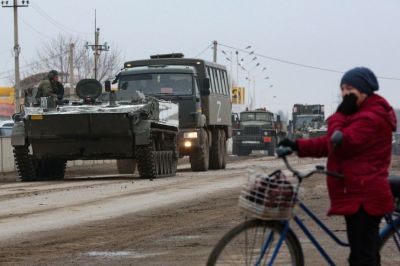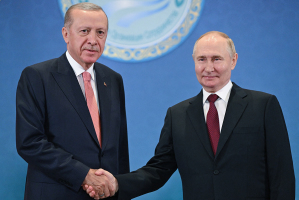Should Christians kill?

The current war in Ukraine reignites the debate over whether Christians should be pacificists or if they have a responsibility to fight and therefore defend themselves. Christian pacifists consider fighting a betrayal of the message of Jesus’ Sermon on the Mount, which is deeply rooted in our social morality and remains the ultimate reference of Christian moral judgment. On the other hand, responsibility ethics dictate that the use of force is justified when used in self-defense.
Pacifism versus responsibility – who can rightly refer to Jesus and who is wrong? This question falls short. Paradoxical as it may sound: We need both.
From the perspective of Christian pacificism, God is peace. Since every human being bears the dignity of being created in God’s image, the violent killing of a human being is always a violation of dignity. War is always evil. Christian pacifists are therefore convinced: No violence can be legitimized, not even when we or our families are attacked. Jesus preached peace, not war. The mandate to love our enemies even suggests that we break the spiral of violence by a love of overcoming enmity, following the example of Martin Luther King, Jr.
However, others possess a different perspective. Their view is de-escalation and overcoming enmity only work if the other person does not kill me first. The Sermon on the Mount cannot be the ultimate standard of peace when facing death. From this follows the Christian tradition of just or justified war: the use of force as the last means of defense, which is also legitimate under international law.
In the end, it seems to me that the responsibility position is more plausible. If a Ukrainian soldier kills a Russian soldier, that may not be morally acceptable according to the Sermon on the Mount, but it can be an excusable evil from the point of view of responsibility ethics.
After all, what would happen if Ukraine did not defend itself? An entire nation would be deprived of freedom. Other countries like China might be emboldened to engage in more violence and war (against Hong Kong or Taiwan, for example). Death and oppression would spread further; pacifism would abandon the defenseless to ruin. None of this can be allowed to happen.
On the other hand, resisting and destroying evil powers and tyrants is commanded in Holy Scripture. 1 John 3:8 says we must destroy the devil’s work, while 1 Peter 5:9 commands us to resist and stand firm against our enemy. In the Catholic Church, this position is made subject to strict conditions: The damage done to the nation or the community of nations by the aggressor must be certain, serious, and lasting. All other means of putting an end to the harm must have proved impracticable or ineffective. There must be a serious prospect of success. The use of arms must not bring damage and turmoil worse than the evil to be eliminated.
Martin Luther does not advocate pacifism either. In his writings, he justifies violent self-defense to protect the weak as a duty and commandment of charity.
Today, there are also strong pacifist voices against this, such as those of the former German EKD Council President and Bishop Margot Kässmann. Their counterargument is: With what justification is one’s own life to be valued more highly in a situation of self-defense than the life of the aggressor? Here it is life against life.
The moral justification for this lies in an asymmetry: The aggressor attacks a fundamental human good that must be protected. The attacked, who legitimately possesses a fundamental good, must have the capacity to repel an unjustified attack. For example, the Allies were justified in attacking Nazi Germany.
Christians do not have a pacifist mentality. But at the same time, Christianity needs pacifism as a critical mirror before justifying violence.
Dr. Elmar Nass is chair of Christian Social Sciences and Social Dialogue at Cologne University of Catholic Theology, and is the author of the new book: Christian Social Ethics.




























